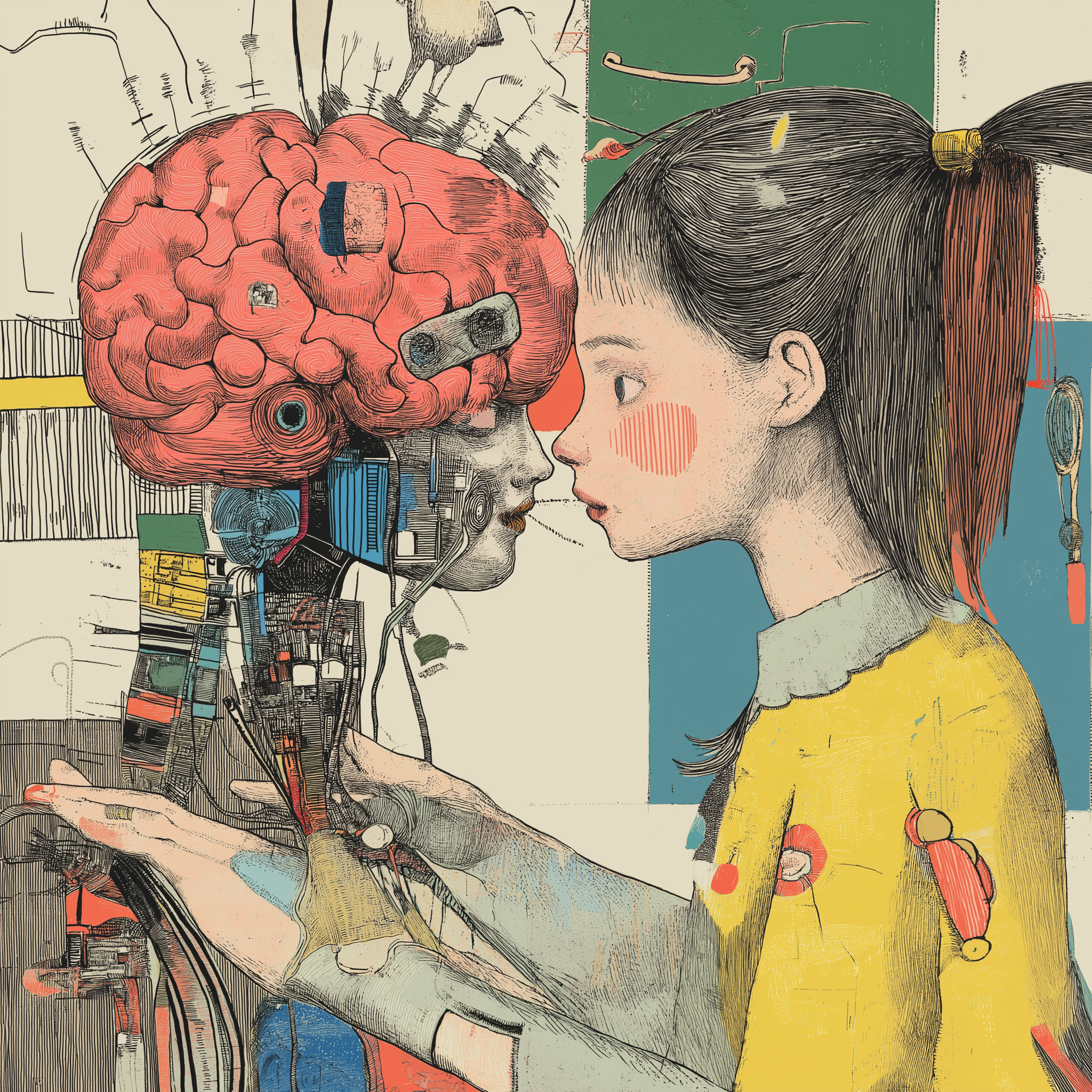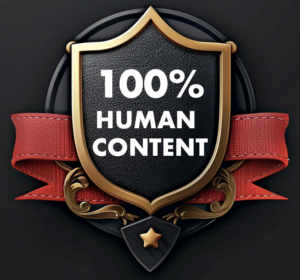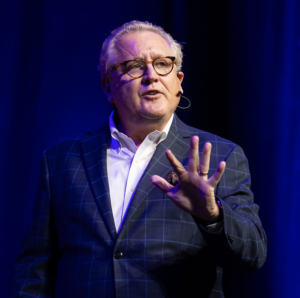
A few months ago, I was asked to participate in a university-sponsored study on how AI will impact humanity by 2035. The resulting research paper is extraordinary, as 300 futurists weighed in on the subject — Being Human in 2035. This is a roadmap of how AI will change your customers in the next 10 years and a vital perspective for marketers.
 Sure, there is a lot of discussion about how AI will impact our content, our businesses, our careers, and our personal productivity. But isn’t it at least important for marketers to know how AI might fundamentally change the humanity of our customers?
Sure, there is a lot of discussion about how AI will impact our content, our businesses, our careers, and our personal productivity. But isn’t it at least important for marketers to know how AI might fundamentally change the humanity of our customers?
Today, I’d like to present six conclusions from the study, which the authors deemed the most probable scenarios. This is not a new marketing gospel. It’s a starting point for reflection and discussion. Our customers are almost certainly about to change dramatically, and we need to start thinking about this now.
Some of these predictions might cause concern or even alarm, but remember that these probabilities also suggest new opportunities and realities for forward-thinking businesses …
1. AI deteriorates critical thinking
The futurists found it highly probable that AI will inevitably wear away at critical thinking skills for an obvious reason. Humans are generally averse to deep thinking.
We look for shortcuts and easy answers. AI makes it easy to skip the work and go right to an answer.
The researchers pointed to a concept called Phronesis, the context-sensitive capacity for self-correcting judgment and a resulting practical wisdom. This capacity is expected to be reduced in an AI-dominant world.
Here’s a personal example. For me, writing a book is the equivalent of earning a master’s degree. For two years, I research, write, and dig deep into new ideas. And I internalize this learning. At the end of the process, I can consult and teach about my book subjects … like personal branding or brand communities.
But if I have AI do the work and write the book for me, the opportunity for phronesis is gone. I’ve internalized nothing and gained no new practical wisdom that will propel my career.
2. AI and emotional intelligence
You undoubtedly have seen reports of humans preferring AI in customer service situations. Bots never get tired, irritable, or frustrated. Harvard recently reported that the number one use case for AI today is “therapy and seeking direction.”
We also see AI compassion and patience in ongoing human friendships (and beyond friendships!). Imagine having a partner who always knows the perfect thing to say.
The majority of the experts believe that many humans will prefer AI relationships to human ones. Why not opt-in to a relationship that requires no work, no compromise, no heartbreak?
A friend left this comment on one of my LinkedIn posts:
“I’m so immersed in my conversations with ChatGPT, that I completely forget it’s not human. It’s like having an incredibly powerful and knowledgeable friend. Yesterday we had a long discussion about the rhetoric of a legal document that ended up in a philosophical exploration on how linguistic arrogance corrupts us.”
The new research also pointed out that as these human-synth relationships strengthen, we will become less adept at reading human social clues.
3. AI and human agency
What will it feel like to live in a world knowing that a machine can do almost anything better than you? The experts predict that when machines commonly exceed human performance, it will disrupt our sense of autonomy and free will.
Similarly, when we can expect the perfect intelligent answer to any question, our tolerance for risk will be muted. I wonder what the implication is for word-of-mouth marketing? Will we trust the AI overlords above all?
4. AI and the search for purpose and meaning
The futurists predicted “daunting challenges ahead for maintaining a coherent sense of self with human-synth experiences becoming as important as human-to-human connections.
We will feel less important, especially as the job landscape changes and AI overtakes many job functions, departmental activities, and corporate functions.
5. AI and cognition
As AI mediates decision-making, humans may lose confidence in their own reasoning abilities and default to AI recommendations without critically assessing them.
In other words, we will trust part of our brain to the cloud, abdicating much our knowledge and decision-making to our exo-brain.
6. AI and truth
There will be no difference between real and synthetic content so truth can be whatever we want to make it. There will be no shared truths because people can surround themselves with whatever content supports their own truth.
Of course, we don’t need to wait for 2035 to see that. It’s already happening.
The rest of the story
This is just a small summary of the report. There are hundreds of pages of ideas and insights that are well worth exploring.
I think the value of this research is clear. Nobody knows what’s coming next in the AI world, but it will certainly be surprising and powerful. Having a consensus of expertise, or at least a high probability of the future scenario, can help us stay ahead of the curve. We can begin to see new human needs that will require business solutions.
I also believe that for many of these predictions, there will be an “anti-reality.” While many people will turn to bots for love and support, others will determine to stand apart from that future. Some may flock to AI for their decision-making while others will drop out and form a more humanistic society.
Still, as AI leads us to a world of ease, speed, and personalized service, there will be pressure to conform and be part of the mainstream.
The thing is, we’ve seen this movie before. We said we’d never carry devices that track our every move, store our private conversations, and expose our children to bullies. Yet here we are, inseparable from our smartphones.
This isn’t about panicking. It’s about paying attention.
The marketers who thrive will be those who understand both sides of this shift — those embracing AI’s benefits and those deliberately stepping away from it. Both groups are your customers. Both need to be seen.
The opportunity is clear: solve for the new human needs emerging in this transition. Because while the AI-enabled world might seem somewhat dystopian, the benefits will be too great to resist. And the businesses that help people navigate this shift with their humanity intact? They’re the ones that will matter.
 Need a keynote speaker? Mark Schaefer is the most trusted voice in marketing. Your conference guests will buzz about his insights long after your event! Mark is the author of some of the world’s bestselling marketing books, a college educator, and an advisor to many of the world’s largest brands. Contact Mark to have him bring a fun, meaningful, and memorable presentation to your company event or conference.
Need a keynote speaker? Mark Schaefer is the most trusted voice in marketing. Your conference guests will buzz about his insights long after your event! Mark is the author of some of the world’s bestselling marketing books, a college educator, and an advisor to many of the world’s largest brands. Contact Mark to have him bring a fun, meaningful, and memorable presentation to your company event or conference.


